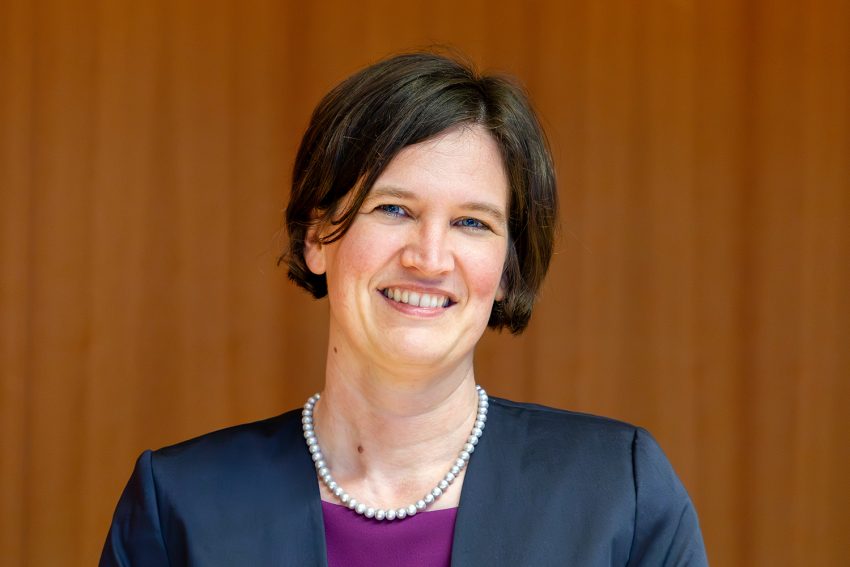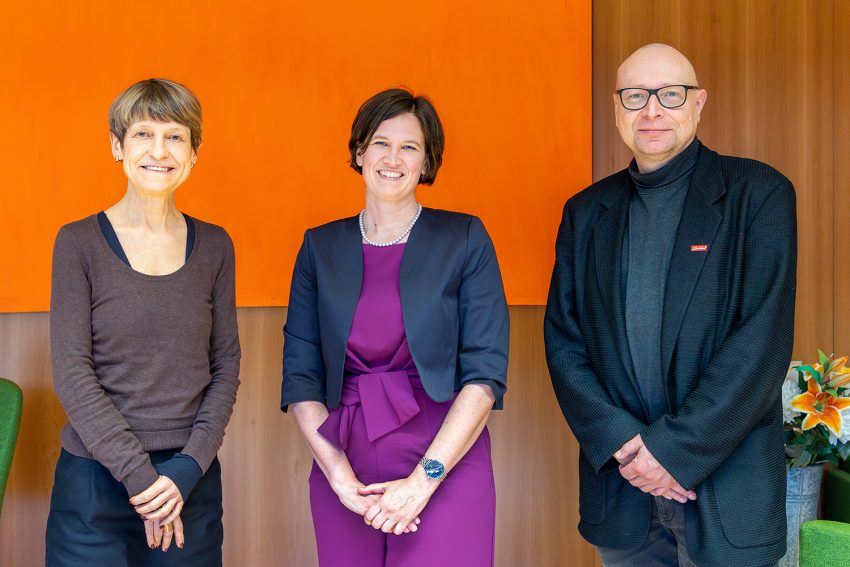Mathematical modelling – a very practical approach Katrin Vorhölter is the new professor of mathematics education and elementary mathematics.
How can students be empowered to apply mathematical knowledge to real-world problems? How can the teaching of mathematics be designed in such a way that it also helps students in their personal development? Katrin Vorhölter, the new professor of didactics of mathematics and elementary mathematics at TU Braunschweig, is researching these questions. In this interview, she talks about her research into the didactic facets of mathematical modelling and the promotion of mathematically (highly) gifted children and young people.

Katrin Vorhölter is professor of didactics of mathematics and elementary mathematics. Photo credit: Kristina Rottig/TU Braunschweig
Professor Vorhölter, why did you choose TU Braunschweig?
I began my academic career at the University of Hamburg. Similar to TU Braunschweig, the didactics departments there are grouped together with the other educational science departments in one faculty. I have always found this conducive to research cooperation and exchange. After all, as specialists in subject didactics, we generally work on more similar issues than the corresponding subject disciplines. I am therefore convinced that I will find a favourable environment for my research at TU Braunschweig.
What exactly do you do in your research? How would you explain your work to someone who is not familiar with the subject?
My research is mainly concerned with different didactic facets of mathematical modelling. This includes the question of how to empower students to use their mathematical knowledge and skills to find their own solutions to problems in the world around them, or to critically analyse reports in the media using mathematical methods. It is becoming increasingly important to integrate the knowledge and skills of other disciplines alongside mathematics, as many of the complex problems of our time cannot be solved by one discipline alone. We have seen this, for example, with the problems of the recent pandemic years.
Another example is climate change issues, i.e. issues related to sustainable development as a whole. My research focuses both on how such topics and materials can be prepared to enable students to work on these topics, and on how students proceed when working on these topics, i.e. what helps or hinders them, and what skills teachers need to have in order to support their students.

Professor Katrin Vorhölter with TU President Angela Ittel and Professor Eckart Voigts, dean of the faculty of humanities and education. Photo credit: Kristina Rottig/TU Braunschweig
What are the main research areas and projects you will be working on at TU Braunschweig?
In addition to mathematical modelling in the context of Education for Sustainable Development (ESD) and STEM, I would like to devote more time to researching and, in particular, promoting mathematically (highly) gifted children and young people. This is because scientific studies show that we in Germany do not provide enough support for these children and young people in the classroom. This includes research into what teachers can do and how we can enable them to support children and young people individually.
What motivated you to do research in this area?
My motivation for doing research is to help ensure that as many students as possible experience mathematics education that helps them to develop personally and to acquire the knowledge and skills they will need in life. Incorporating problems from the world around them is one way of giving students a purpose for learning mathematics. At the same time, studies have shown that the application of mathematical knowledge outside the classroom does not happen automatically. However, it is important to me that the focus on application does not come at the expense of mathematical skills and abilities. After all, I can only use this knowledge if I have solid mathematical knowledge and the corresponding application skills.
In three words, how would you describe your day-to-day work?
Unpredictable, varied and fulfilling.
